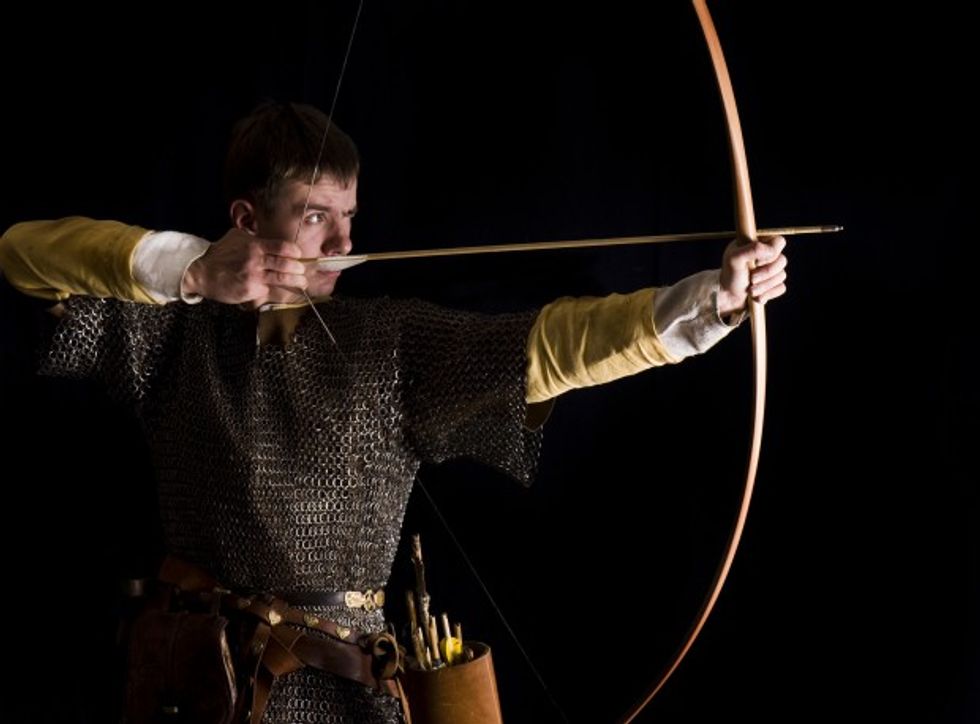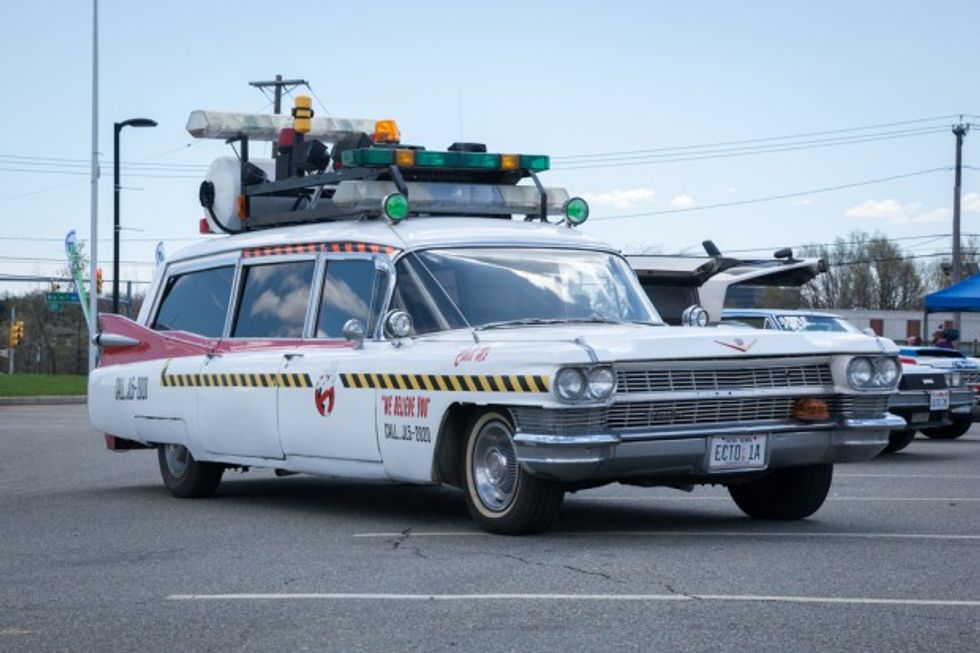
Photo Credit: Shutterstock

The Libertarian Party in the United States was founded in the 1970s. The term "Libertarian" was coined by William Belsham in 1789, but the ideals of freedom and liberty are as old as time itself. Anywhere people are oppressed by a tyrannical government, there is a great many of them who long for liberation. Libertarianism has gained a lot of steam in mainstream politics over the last decade, but many libertarian themes have existed in popular media right under our noses for centuries.
Those on the left like to equate President Barack Obama with Robin Hood. They claim that his policies of redistribution of wealth are the same as Robin Hood robbing from the rich to give to the poor. Of course, they don't understand the story of Robin Hood.

Robin Hood never robbed from the rich and gave to the poor, at least not the way most people think he did. Robin Hood robbed from the corrupt government, under King John, and returned to the overtaxed people what the crown had first stolen from them. Robin Hood and his band of Merry Men opted out of society and lived by themselves as outlaws in an Anarchist community of their own design. This is textbook libertarianism. Robin and his men all shared equally in the hunting and robbing, and they all shared in the rewards. While Robin may have led them into battle, he never ruled them in the forest.
In 1919, American author Johnston McCulley serialized a novel called "The Curse of Capistrano," which introduced the character Zorro. Like Robin Hood, Zorro also fought corruption within the state. He robbed from the governor - or the mayor, depending on the story - and returned the money to the people. In both the Robin Hood and Zorro legends, oppressive government is the bad guy, not necessarily the rich. Zorro himself was a caballero - a member of the Spanish 1 percent.
Just after the end of World War II, George Orwell published the prophetic novel "1984," which warned of a world run by a totalitarian government. In Orwell's world, the government watches everything you do, regulates everything you think or say, and filters what the people are allowed to be exposed to. Almost 70 years later, it's scary to see how much of Orwell's vision is actually coming to fruition the world over.
Ironically, the actual year 1984 brought us a couple of films with strong libertarian themes.
The most obvious was "Ghostbusters," which the Washington Examiner called "the most libertarian film of all time." This view mostly comes from the human antagonist - as opposed to the supernatural villain - being a government bureaucrat from the EPA of all places. "Ghostbusters" has much more going for it than just this, however. In addition to laughing in the face of ridiculous government regulation, "Ghostbusters" also takes a few shots at academia and promotes the idea of private business, stepping in with a private sector solution to a problem being ignored by the incompetent government.

Also in 1984, 20th Century Fox released the movie "Kidco," which unfortunately has been all but forgotten. "Kidco" tells the true story of several kids who decide to go into business for themselves as pest controllers and fertilizer sellers. "Kidco" illustrates perfectly the idea of crony capitalism. Losing customers to the kids' upstart endeavor, a big business fertilizer mogul enlists the government to shut the kids down. It really is a shame that this movie seems to have faded into the past, as it is a movie that all children should watch. However, it can be found on YouTube. "Kidco" is a cute and funny movie, but also teaches the kids the value of ingenuity, hard work and standing up to unfair government bureaucracy.
In 1988 DC Comics publish the graphic novel "V for Vendetta" by Alan Moore. The film version took several liberties with the property, causing Moore to distance himself from Hollywood. While the film tells the story of a liberal terrorist fighting against an evil, neo-conservative government - almost prophesying the Occupy Wall Street movement - the book actually told the story of an anarchist hero battling a totalitarian fascist government. The film tried to tell us that conservatives are bad and liberals are good, while the message of the graphic novel was always that government is bad and individuals are good.
With films like "The Hunger Games," "The Giver," and "Captain America: The Winter Soldier" spreading libertarian ideals all over Hollywood, it's no surprise that more and more young people are beginning to embrace the ideals of minimum government and maximum liberty. Marvel will take the libertarian themes in "Winter Soldier" one step further when they release "Captain America: Civil War" next year. More young people are being exposed to libertarian ideals everywhere they turn, and they are responding positively.
According to Fox News, "Young Libertarians could save the GOP." This might be true, but for it to happen the GOP will have to give these young libertarians a candidate they can latch on to. The 2012 election, and the abysmal defeat of Mitt Romney, proved that young libertarians won't gravitate to just another big government conservative. For libertarians to save the GOP, the GOP will have to embrace libertarian policies. Otherwise, libertarians won't save the GOP, they will abandon it, and the Grand Old Party will become just another political party the United States used to have.
–
TheBlaze contributor channel supports an open discourse on a range of views. The opinions expressed in this channel are solely those of each individual author.